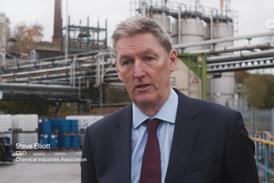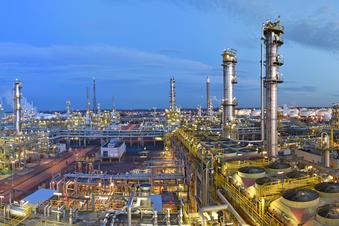As the UK introduces its CBAM in 2027, the Government is minded to reduce free allocations to CBAM sectors. This could have a detrimental impact on the UK’s ability to compete in overseas markets. The EU has already announced plans to support EU producers facing a mirror issue. The UK Government must act now, to put in place an effective, predictable and long-term carbon leakage mitigation regime to unlock investment in the UK.
The chemical sector supplies critical inputs to all net zero technologies. Wind turbines blades are made of composites and their towers protected with coatings. Acids and solvents are used to make solar panels. Batteries are chemical energy storage and battery innovation is industrial chemistry. As we rewire the UK to electrify homes, transport and industry, we will insulate interconnectors, transmission lines and the wires in our homes with chemical products. A strong chemical industry is the heart of a secure and successful economy.
Yet chemical assets in the UK have dwindled over the last decade, with a marked decrease in facilities producing major chemical building blocks and polymers. Several factors have driven this decline but most notably, competitors in the Middle East and Asia have benefitted from cheaper feedstocks, lower energy costs and less stringent environmental regulations. The UK’s higher operational costs have led to the closure of plants and an increased reliance on imports.
Free allocation is a carbon leakage mitigation measure that is intended to shield participants in the UK’s Emission Trading Scheme (ETS) from the carbon price related to the portion of their emissions that cannot immediately be reduced. Free allocation is designed to allow a site to continue to operate in the UK while it looks to invest to decarbonise. Free allocation is also a tool for rewarding investment in decarbonisation because unused free allowances can be sold in the carbon market, reducing the need for Government decarbonisation support.
Importantly, because free allocation applies to production, regardless of the end market, it provides carbon leakage mitigation for UK manufacturers wherever their products end up. In contrast, the incoming UK Carbon Border Adjustment Mechanism (CBAM) will apply a price to products as they enter the UK market, meaning importers will face the same carbon price as UK manufacturers but only when selling into the UK market. As currently proposed, the UK CBAM would provide no carbon leakage mitigation for UK manufacturers selling to overseas markets.
As the UK introduces its CBAM in 2027, the Government is minded to reduce free allocations to CBAM covered sectors. The CIA believe that this is unnecessary, because the design of the UK CBAM accounts for free allocation when it calculates the effective carbon price that importers should pay. The simplest solution would be to ‘do nothing’, i.e. treat free allocation to CBAM sectors in the same way as other sectors. This would ensure UK manufacturers are afforded effective carbon leakage mitigation in both their home market and overseas.
Raising the stakes, the European Commission this summer announced plans to introduce a new measure to address the risk of carbon leakage for EU-produced goods produced in EU CBAM sectors. Detailed proposals are expected by the end of 2025, with the aim of supporting EU producers and ensuring equal treatment for all goods, whether produced and sold in the EU, imported into the EU or exported. The measure is part of the Commission’s efforts to prevent carbon-intensive production from being shifted to countries with less stringent climate policies and is considered a crucial step in promoting a sustainable and low-carbon economy.
The UK’s Modern Industrial Strategy presents an opportunity to re-evaluate our total approach to carbon pricing and leakage mitigation. A realistic and holistic approach is required to ensure a change in direction towards decarbonisation rather than a continued process of deindustrialisation. Changes to the UK’s free allocation rules for CBAM sectors will be announced before the end of this year and take effect in 2027. It is vital that the Government use this opportunity to put in place an effective, predictable and long-term carbon leakage mitigation regime to unlock investment in the UK, just as the EU is moving to shore up its industry.
In a world in which UK manufacturers face a carbon price which others do not, only a high carbon price and effective carbon leakage mitigation together can unlock investment in net zero technologies.






















